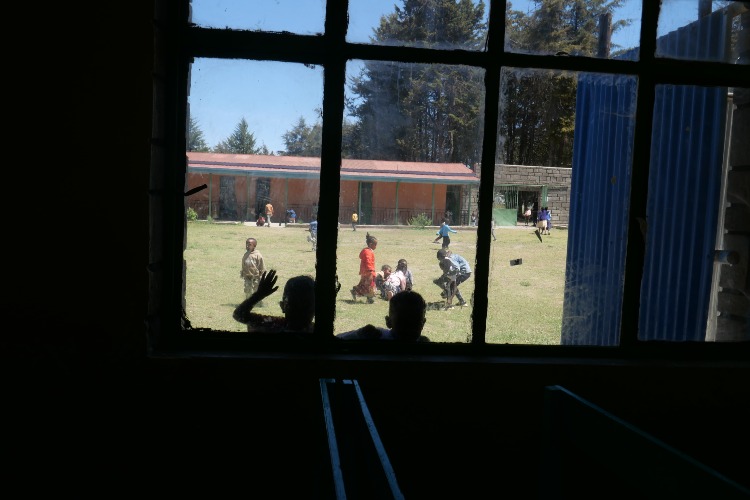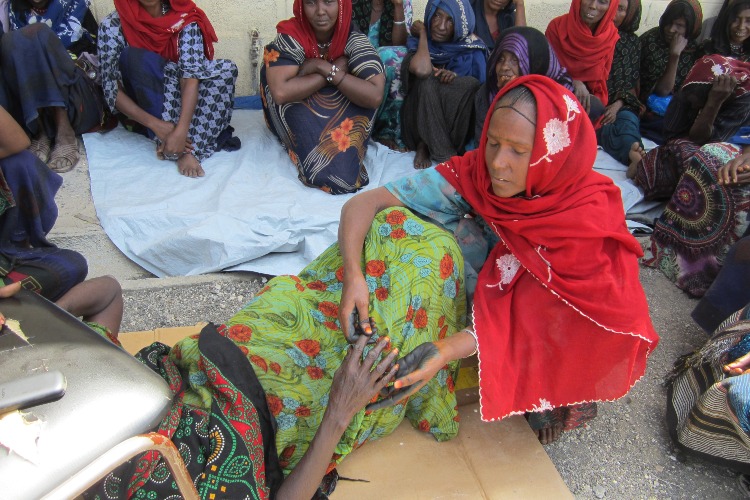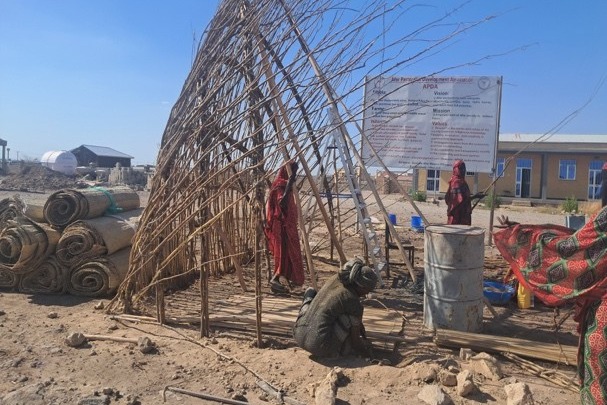Meet our partner in the field: Yenege Tesfa
17 May 2024


Interview with Kassahun Demisse Melesse - General Manager of our partner, Yenege Tesfa
- How long have you worked at Yenege Tesfa and what is your role?
My name is Kassahun Demissie Melesse and I am the General Manager of Yenege Tesfa Organisation in Gondar, Ethiopia. I have worked for Yenege Tesfa for eight years, first as a program manager, and in finance and administration, and now as General Manager.
- What does Yenege Tesfa aim to do as an organization?
Yenege Tesfa has four main activities. The Homes for Tomorrow, Educational Support, Health, and Income Generating Activities and Societal Development. We are there for the vulnerable and very poor people in our communities, to give them opportunities to be in control of their lives.
- Could you tell us what the Homes for Tomorrow are?
Homes for Tomorrow includes the Group Home children and the Daycare children. The reason for the Group Homes is that there were lots of children who were orphans or came from very poor single-parent families. They were not able to lead their own lives. So we established the Group Homes, where all things are provided to the children for their basic needs and their survival. The main objective of the Group Homes is to give the children food and clothing, as well as a good education also.
The Daycare program is for three- to six-year-olds, and looks after children during the day. This was established because there are many single mothers who carry the burden of raising children, but they also must earn an income. We look after the children, who are supported with everything they need. They receive education and learning materials, and also they are given food and other basic necessities. This way, we are not only helping mothers to work and support their families, but we are teaching the young children too.
- What are some of the changes you see in the children who live in the group homes?
Many of these children have had very difficult lives before coming to us. Some of them suffered abuse. All of them suffered from poverty. Their lives were almost spoiled. They would spend their time on the streets. They were exposed to diseases and danger. But now they are protected and supported with many things they need in life. All their lives are completely changed. We see in them self-confidence, and they see themselves as equals with other children. They have developed social skills. They now can have a future.
- What is involved in the Educational Support programs?
Educational support includes school materials, the meals programs, school sponsorship, mobile school, and mobile libraries. All of these things are for children who are very desperate or destitute, and would not get any education otherwise. These programs are there to support not just learning, but also the self-esteem of the children who have difficult lives.
We provide food for preschool children, which gives motivation for them to come to school. Many children would be forced otherwise to spend their day trying to find something to eat.
We have a mobile school, where students who are living in the streets can come and spend their time playing, exercising, drawing and learning.
In the education programs we have reached many thousands of young people around the Gondar and Debark regions, so it is a very big project.
- What activities do you do in Health?
We have medical and health-related services. We help many patients who don’t have any support, or who would not be able to go to hospital or health centres because they don’t have enough money. Yenege Tesfa helps them to go to hospitals or a clinic and pays for the fees.
We also support people by paying for transportation costs if they have to travel to go to specialist hospitals, such as in Addis Ababa.
Our Health programs also include training and learning. We give family planning education, education about HIV and AIDS, and even psychological and psychosocial education.
- Can you tell us about some of the skills single mothers are learning in your programs for income generating activities?
Our Income Generating Activities and Societal Development program supports single mothers with training in order to be productive and self-sufficient. We give trainings about growing vegetables, and also how they can use them properly. We also teach single mothers to weave clothing and make things out of bamboo materials, so they can make a living from selling things they’ve made.
We also have our animal farms. We have set up dairy farming, sheep farming, a bee farm and a chicken farm. These farms have multiple purposes. The farms employ community members, and then we can use the milk from cows to give freely to children who are malnourished. The cow dung can also be used for fertilizer and fire fuel. The other use of these farms is that some of the produce is sold for a fair price to earn money for the organisation.
We also give sheep to single mothers for their own use so that they can improve their lives with an income.
- What is the biggest challenge you face working at Yenege Tesfa?
Right now, it is a very challenging time. Everything is challenging. We are facing economical and political problems. And as everybody suffers, we all suffer.
There is lots of fighting around here. Some people cannot get to the market, for example, without being threatened by violence. Sometimes roads are blocked and there is looting. Some people we are helping are direct victims of the current situation of conflict, and have had to leave their homes because of the fighting.
And for us, running the organisation, there is the challenge of communication. For many months now, we cannot have any internet. I have travelled today to a hotel some kilometres from our office so I can connect to the hotel internet. Most people do not have any access to internet, so it’s very difficult to communicate.
- What message would you like to give to people in Australia who support your work?
This is what I can say: Thank you. Thank you very much.
Your support is standing for many, many people, and saving lives. The money you donate is being used for its purpose. We are saving lives. We are helping human beings. We are just supporting people who are suffering, people who are victims of political and economical problems created by others, not by themselves.
So I would like to thank you so much.






